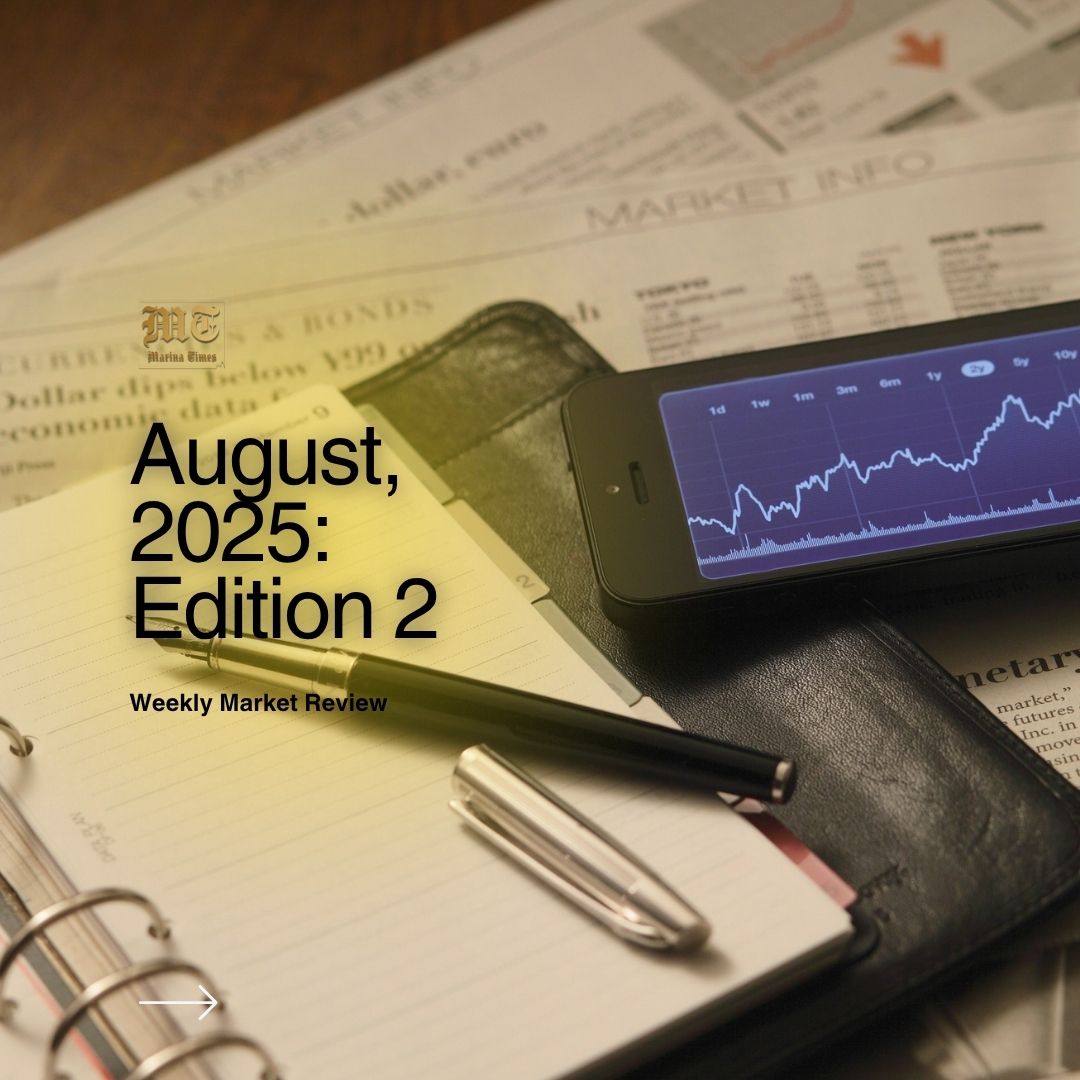

Last week, the outcome of the Central Bank’s Open Market Operation (OMO) laid bare a stark investor preference for the 245-day paper, which drew an extraordinary ₦2.12 trillion in bids against the ₦300 billion offered, while the 105-day bill saw zero sales despite a modest demand of ₦80 billion. The Nigerian Treasury Bill (NTB) auction exposed a pronounced divergence in investor appetite, as market participants gravitated heavily towards the 364-day paper, avoiding the short end. Stop rates held steady for the 91 and 182 day bills and increased for the third bill for the 364 day issue.
On Friday, the money market opened with a surplus of ₦750 billion, capping a week that remained positive despite a mid-week deficit of ₦1.61 trillion. Thus, the Overnight (O/N) and Open Repo Rate (OPR) rates peaked at 27.50% and 27.20% respectively, before easing slightly to close at 27.02% and 26.60%, respectively. In the FX market, the Naira traded between a high of $/₦1,537.25 and a low of $/₦1,528.00 during the week to close at $/₦1,534.90 on Friday.
The result of the OMO auction conducted on August 5, 2025, with an aggregate offer size of ₦600 billion across 2 tenors, witnessed high preference for the long-dated bill, while the short-dated bill had minimal interest with just ₦80 billion in bids and no sale recorded despite a broad range of bids. In sharp contrast, the 245-day paper drew robust demand with bids reaching ₦2.12 trillion (7x its offer). It was cleared at a marginal rate of 23.70% (a 17-basis point reduction on the longer end from the previous auction) within a competitive bid range of 22.50% to 23.78%.
TENOR | AUCTION DATE | OFFER (₦’ B) | BIDS (₦’ B) | RANGE OF BIDS (%) | STOP RATES (%) | PREVIOUS STOP RATES (%) | TOTAL SALE (₦’ B) |
105-DAY | 05-08-2025 | 300.00 | 80.00 | 24.4400-25.1000 | 0.0000 | 0.000 | 0.0 |
245-DAY | 05-08-2025 | 300.00 | 2,122.85 | 22.5000-23.7800 | 23.7000 | 23.8700 | 2,122.10 |
The August 6, 2025, NTB auction showed firm investor preference for the long end, with an oversubscription of 2.31x on the 364-day bill, compared to the other tenors. The stop rate increased by 62bps to16.50% for the long-tenor while the short and mid-tenors held steady at 15.00% and 15.50% despite weaker demand. The bid-to-cover ratios reflected this trend across board; with an under-subscription (0.38x), slightly over-subscribed (1.04x) and strongly over-subscribed (2.31x) for the 91-, 182- and 364-day respectively, resulting in an overall auction ratio of 1.67x. Compared to the previous auction, the overall bid-to-cover ratio fell from 2.33x to 1.67x, reflecting a decline in investors’ appetite, likely driven by the government’s reduced borrowing appetite, fuelling expectations of further rate moderation.
AUCTION DATE | 06-08-2025 | 06-08-2025 | 06-08-2025 |
ALLOTMENT DATE | 07-08-2025 | 07-08-2025 | 07-08-2025 |
MATURITY DATE | 06-11-2025 | 05-02-2026 | 06-08-2026 |
TENOR | 91-DAY | 182-DAY | 364-DAY |
OFFER (₦) | 60,000,000,000 | 20,000,000,000 | 140,000,000,000 |
SUBSCRIPTION (₦) | 22,600,911,000 | 20,871,436,000 | 323,082,575,000 |
ALLOTMENT (₦) | 15,334,581,000 | 18,320,262,000 | 139,594,575,000 |
RANGE OF BIDS (%) | 14.4800 – 18.0000 | 14.9500 – 17.6400 | 14.9500 – 21.0200 |
STOP RATES (%) | 15.0000 | 15.5000 | 16.5000 |
PREVIOUS STOP RATES (%) | 15.0000 | 15.5000 | 15.8800 |
The secondary market is in a situation reflective of a stalemate, with rates hovering between the higher 16% threshold and low 17% region for most active bonds (the 2031, 2033 and 2034 maturities). Across both bond and T-Bill markets, there is currently a somewhat unusual inversion where buyers seek higher yields while sellers are pushing for favourable levels. This disconnect signals uncertainty over rate direction and liquidity conditions, creating execution inefficiencies and dampening price discovery. In the views of many stakeholders, the extreme volatility of recent weeks makes it more of a watch-and-wait scenario than a compelling entry point.
The notable resolution of all outstanding forward FX contracts by the Apex bank is a confidence-restoring move for the Nigerian markets, as it removes a long-standing overhang of uncertainty around currency obligations. With the completed forensic audit, payment of all validated transactions, and the Naira value refund of unverified deals, the CBN has effectively closed a chapter that had strained liquidity planning for banks, corporates, and portfolio investors. This action signals a more transparent and rule based FX management approach, which will improve foreign investor sentiment, especially for those previously concerned about counterparty risk and the convertibility of naira positions. In the short term, the clean-up could strengthen naira stability, ease pressure on FX forwards, and encourage renewed portfolio inflows into Nigeria’s investment market. However, sustained capital market benefits will depend on whether the CBN can maintain timely FX settlements going forward and create a more predictable currency market structure.
The Afrexim bank-led $4 billion refinancing of the Dangote Refinery marks a pivotal boost for Nigeria’s oil sector and the broader economy, easing operational costs while accelerating the ramp-up from 500,000 to a planned 700,000 barrels per day. This would significantly reduce fuel imports, cut FX outflows, bolster Naira stability, and position Nigeria as a net exporter of refined products across Africa, while improving its trade balance and energy security. The project’s scale will stimulate industrial growth through petrochemical production, create skilled jobs, and feed downstream manufacturing. With its planned IPO by the end of 2026, this could deepen Nigeria’s capital markets and attract both domestic and foreign investors. Beyond the direct economic gains, the deal sends a powerful signal of confidence in African-led financing and infrastructure delivery, honing Nigeria’s potential to shift from crude-export dependence to higher-value industrial output.
The NGX All-Share Index sustained an overall bullish run through the week, climbing from 144,129.77 on August 4 to a peak of 146,571.00 on August 7, before closing slightly lower at 145,757.00 on Friday August 8, presenting a 1.13% weekly gain. Driven by sustained investor interest and resilient corporate earnings, the mild pullback at the week’s end reflected cautious profit-taking amidst lingering global uncertainties.
The recent global trend of key Central Banks, including the U.S. Federal Reserve, facing mounting political pressure to cut rates risks distorting the true picture of underlying economic conditions, as some policymakers may deploy measures to mask market vulnerabilities rather than confront structural imbalances. Such interventions, while politically expedient, could cloud investor perception, delay necessary adjustments, and fuel asset mispricing. For Nigeria, this backdrop could complicate the recent rebound of the Naira, as artificially loose global monetary conditions could stoke capital volatility, import-driven inflation, and speculative FX flows. Without appropriate domestic measures, such as deepening market transparency, tightening fiscal discipline, and supporting productive investment, the stability of the currency in the near-term could prove fragile, eroding confidence and distorting the country’s macroeconomic outlook.
Oil prices endured a volatile week, swinging between losses and brief rebounds as traders weighed oversupply concerns against shifting geopolitical risks. Brent fell from over $69/bbl on Monday to $66.69/bbl by Friday, while WTI slid from near $66.5/bbl to around $63.88/bbl, marking the steepest weekly drop since late June at roughly –5%. The dominant bearish driver was OPEC+’s confirmation of a 547,000 bpd output hike in September 2025, completing the reversal of 2023’s voluntary cuts and raising fears of a supply glut amid a fragile demand outlook. Additional pressure came from soft US economic data and escalating trade tensions, with President Trump imposing new tariffs on India over its Russian oil imports and hinting at more against China. Midweek gains, sparked by larger-than-expected US inventory draws, Saudi price hikes for Asia, and speculations that India might curb Russian imports, were short-lived as confirmation of an upcoming Trump-Putin summit eased supply disruption fears, and pulled prices lower into the weekend. As of Aug. 11, Brent is trading at $66.34/bbl and WTI at $63.59/bbl.
Nigeria’s near-term market outlook will be shaped by global easing, trade tensions, and local macro pressures. The UK’s rate cut could spur portfolio flows into Nigerian assets, but Trump’s renewed tariffs dampen risk appetite and appear to support global inflation. All eyes are on the July 2025 inflation report due Friday; a softer print could extend the year’s gradual disinflation trend and give the monetary authority room to ease, while an upside surprise may harden the policy stance and keep rates firm. With inflation still high and the Naira still somewhat vulnerable, the CBN faces a delicate balance between liquidity and currency stability. Sustained offshore inflows hinge on aligning domestic policy clarity with the global dovish momentum; failure to do so could keep rates elevated and FX pressures intact.
The world’s financial capitals are beating the drums, whispering… “Cut the rates, cut them now.” From marble halls in Washington to glass towers in London, under the watchful eyes of politicians, Central Bankers are being pressed to ease the cost of money.
Quick relief is being offered,… but it’s a relief that hides the cracks, masks the wounds, a bandage where stitches are needed.
Cheap money can paint bright headlines, yet it deceives the eye. Investors read hope where there is caution; reforms are shelved for another day, and markets dance to music out of tune with the truth.
Is it a mirage?… Like all mirages, it fades when the heat rises.
How will this song play in Nigeria? Two sides of the coin: One whispers danger, the other hums with hope.
We stand on shifting ground. The Naira, fresh from its rebound, shines with fragile pride. But will it hold?
Loose global credit can flood in like fickle rain. Raising prices on imported goods, stirring restlessness in the foreign exchange market, and tempting capital that departs as fast as it arrives.
If we do not build our own guardrails, keeping clear eyes on the market, steady hands at the treasury, and seed in the soil of real production… The Naira’s glow will dim, confidence will scatter like dry leaves before the harmattan wind, and the economy will stand bare, exposed to the storm.
By: Sandra A. Aghaizu